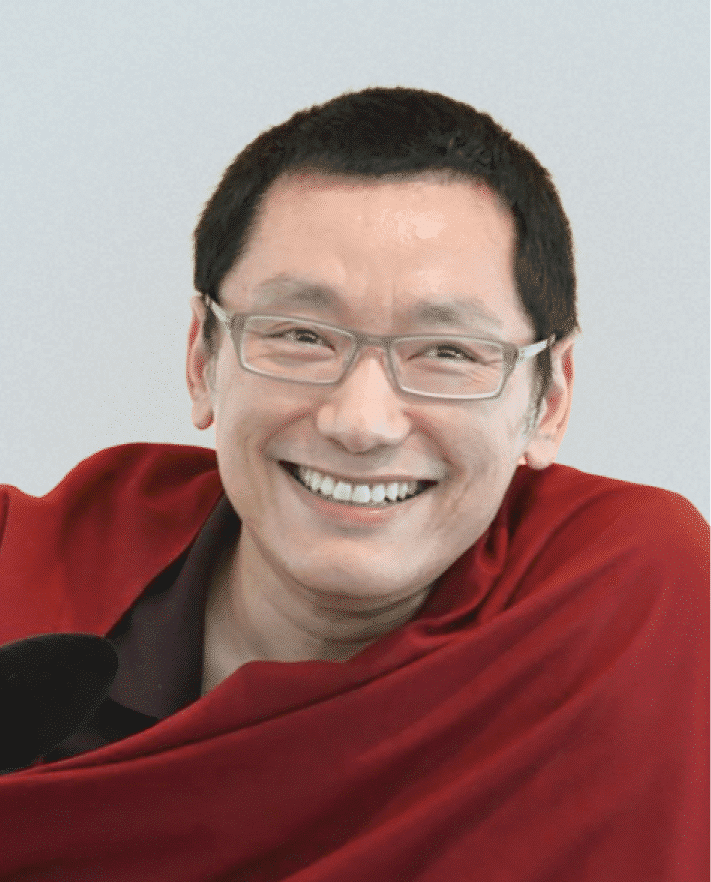Compassion Overcomes Fear
Category: Buddhist Meditation | Love & Compassion Meditation | Mind Trainer Articles | Popular

Freedom from fear comes from lovingkindness and compassion
Compassion is the foundation of all goodness. It’s beyond culture, beyond language, beyond religion, beyond time, and beyond space. It’s also beyond humanity because other species demonstrate this quality as well. No matter how fierce and aggressive some of them may be towards other species, they are compassionate and loving to their own young. Every being that has sentience—that is, awareness and feelings—has the ability to care for and about others.
What is compassion? It’s a very strong, positive emotion or attitude where there is a longing for happiness and for freedom from pain, suffering, fear, and danger. This translates as the wish that all who desire harmony, safety, and protection will find them. Our wish for the well-being of all beings includes ourselves: that’s self-compassion. Not only is compassion a very important part of our practice, it’s an important attribute for all humanity. It’s so very basic.
Compassion is naturally hardwired into every one of us. That’s good news! We already have it! It’s not a foreign thing—we know it, we can feel it. We don’t have to look outside for it—it’s there within us. Not only do we have it, we have ability to extend, expand, and cultivate it. That’s great! There are no real barriers to compassion.
Recognizing this opens the door to genuine self-acceptance. We recognize we are fundamentally good because we are fundamentally compassionate. We like compassion. We like good things. We like happiness. We don’t like suffering. We naturally lean towards goodness and happiness and distance ourselves from the bad things. This demonstrates that the fundamental nature of every being is good. Not only that, we humans have the ability to take mindful action and expand our compassion: we can make good into better, and better into best.
As positive as all of this is, we have a lot of challenges at the same time. The challenges come from our concepts—not from the heart, but from the brain. Our brain is trained according to what we receive, experience, and learn from our environment. As young children we were very open, weren’t we? We were very pure. Then, as we gained more experiences in life, difficulties arose. Maybe people weren’t honest with us or they cheated us. Once we’ve had challenging experiences like these we become more and more careful; we close parts of ourselves off. This is how the environment changes us as human beings. A lack of trust is not naturally within us. What’s naturally born within is the goodness of our hearts. So how do we dissolve the barriers to self-compassion and compassion for others when we’ve lost trust and developed a sense of fear?
Fear is a big thing for everyone. There’s a general misconception about compassion and lovingkindness, a sort of assumption that these are qualities for weak people. If you’re compassionate, people will take advantage of you and at the end you’ll lose. It’s as if there was a fear of kindness. But we all have fears, and they have nothing to do with compassion or kindness! We have insecurities and fears based on not being able to predict the future, or about being attacked by others, losing things, losing our reputations, and so on. And where does this feeling of fear come from? It comes from a strong sense of “I,” of self, doesn’t it? We have put too much importance on the self. And that self-importance is the reason we have all of these fear-related problems.
What can help us overcome this? Is there anything that facilitates releasing fear? Nothing helps more than compassion. Compassion is the concern for others’ well-being—you cannot have compassion without having empathy for others. Others are more visible to you; you’re no longer ignoring them and their difficulties. The more you think about others, the more that disproportionate importance of self is reduced. When you don’t care as much about the self, you have less fear and less self-judgment. Your fears may not be eradicated completely, but they’re not that important anymore.
This is why compassion is the best antidote to fear; otherwise there’s really no end to it. It’s the opposite of the popular misconception that lovingkindness and compassion are signs of weakness. Compassion is actually very, very powerful because it is the cure for fear—the one force that can subdue the biggest tyrant, the biggest problem that threatens to dominate our lives. So that, in a nutshell, is the direct connection between compassion and fear.






